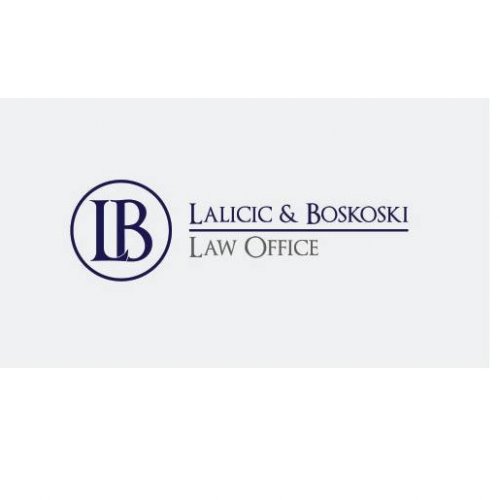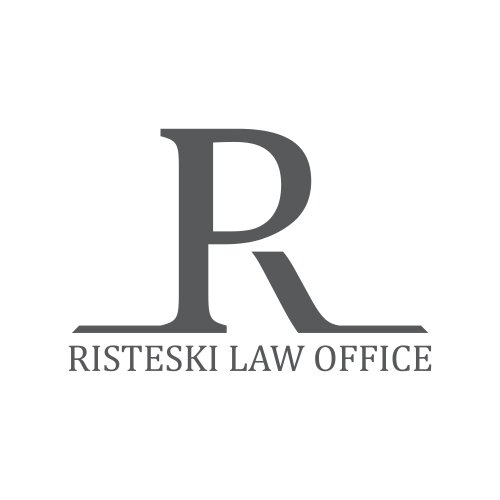Best Restructuring & Insolvency Lawyers in Skopje
Share your needs with us, get contacted by law firms.
Free. Takes 2 min.
List of the best lawyers in Skopje, North Macedonia
About Restructuring & Insolvency Law in Skopje, North Macedonia
Restructuring and insolvency law in Skopje, North Macedonia, governs the processes by which financially distressed individuals and businesses can either reorganize or settle their debts. This legal area covers formal procedures such as bankruptcy, liquidation, and preventive restructuring, all regulated by the Law on Bankruptcy and other related regulations. The aim is to provide fair treatment to creditors, enable debtors to manage or exit unsustainable financial situations, and maintain stability in the broader economic system.
Why You May Need a Lawyer
If you are facing financial difficulties, considering restructuring your company, or worried about insolvency proceedings, seeking legal advice is crucial. Lawyers with expertise in this area can help in situations such as:
- Evaluating whether to commence restructuring or bankruptcy proceedings
- Navigating court procedures related to bankruptcy or liquidation
- Negotiating with creditors to avoid insolvency
- Complying with reporting and documentation requirements
- Protecting your rights as a creditor if another party is insolvent
- Assessing personal liability of directors or shareholders
- Understanding how assets will be distributed or preserved
- Managing employee claims during insolvency
- Preventing or challenging fraudulent transfers
- Ensuring regulatory compliance throughout the process
Legal counsel can clarify complex legal obligations and help ensure the best possible outcome during financially stressful situations.
Local Laws Overview
North Macedonia’s bankruptcy and restructuring regime is primarily governed by the Law on Bankruptcy. This law outlines the entire legal framework for initiating, conducting, and concluding bankruptcy and restructuring proceedings. Some key aspects include:
- Types of Proceedings: The law distinguishes between bankruptcy (liquidation of assets to satisfy creditors) and restructuring (attempting to save the debtor as a going concern)
- Initiation: Proceedings can be initiated by debtors, creditors, or public authorities when insolvency is established (inability to pay debts or over-indebtedness)
- Bankruptcy Trustee: A court-appointed official manages the process, including asset management, claims verification, and reporting
- Creditor Committees: Creditors have the opportunity to participate in the management of the procedure through committees
- Order of Claims: The law sets priorities for paying secured, preferential, and unsecured creditors
- Protection from Creditors: Initiation of proceedings can impose a stay on creditor enforcement actions
- Personal Liability: Directors and managers can face responsibility if mismanagement or delayed filings are proven
- Procedural Deadlines: Strict timelines apply for submitting claims and proposals
- Setoff and Clawback Rules: Certain transactions prior to insolvency may be challenged or reversed to protect creditors’ interests
Procedures are overseen by specialized bankruptcy courts in Skopje and throughout North Macedonia.
Frequently Asked Questions
What is the difference between bankruptcy and restructuring in North Macedonia?
Bankruptcy usually means liquidation of assets to satisfy creditor claims, leading to a closure of the business. Restructuring is aimed at reorganizing the debtor’s obligations to enable the business to continue operating.
Who can file for bankruptcy or restructuring in Skopje?
Both debtors and creditors can file a petition. Debtors commonly file when they are unable to pay debts as they fall due, while creditors can file if they can demonstrate that the debtor is insolvent.
What happens to employees during bankruptcy?
Employee claims (such as unpaid wages) are generally treated as preferential claims and must be paid before most other creditors. In some scenarios, employees may continue working during restructuring.
Are directors or owners personally liable for company debts?
In most cases, corporate structures protect directors or owners from personal liability. However, if there is evidence of fraud, gross mismanagement, or late filings for bankruptcy, personal liability may arise.
How long does a bankruptcy process typically take?
The duration can vary widely depending on the case's complexity, the number of creditors, and the type of assets involved. Simple cases may conclude in several months; others can take years.
Can a bankruptcy be stopped once it has started?
In certain circumstances, if the debtor and most creditors agree on a restructuring plan and the court approves it, bankruptcy liquidation can be halted and converted into a restructuring process.
What happens to the company’s assets during bankruptcy?
The bankruptcy trustee collects, secures, and sells the assets, then distributes the proceeds according to the law's priority rules among secured and unsecured creditors.
Are there any alternatives to formal bankruptcy?
Yes, debtors and creditors can attempt out-of-court settlements or propose formal restructuring plans to the court as alternatives to liquidation.
Can foreign creditors participate in the process?
Yes, foreign creditors have the same rights as domestic creditors to participate in bankruptcy or restructuring, submit claims, and receive distributions.
What documents are needed to start bankruptcy proceedings?
Key documents often include financial statements, a list of assets and liabilities, records of debts owed, employment information, and other supporting documents as required by the court.
Additional Resources
If you are seeking more information or guidance, consider reaching out to the following entities in Skopje, North Macedonia:
- Ministry of Justice of North Macedonia - Oversees legal and court procedural matters
- Bankruptcy Courts - Specialized courts handling bankruptcy cases in Skopje
- Chamber of Commerce - Offers guidance to businesses on legal and financial restructuring
- Association of Bankruptcy Trustees - Professional body for licensed bankruptcy trustees
- Licensed Law Firms - Firms specializing in commercial law, restructuring, and insolvency
Next Steps
If you think you may need legal assistance with restructuring or insolvency in Skopje, consider taking the following steps:
- Gather all relevant financial documents, contracts, and correspondence
- Make a list of your questions or concerns regarding your situation
- Contact a licensed lawyer or law firm that specializes in insolvency and restructuring in North Macedonia
- Request a consultation to discuss your options and map out a potential legal strategy
- Stay informed about procedural deadlines and remain proactive in communicating with your legal representative and creditors
Acting promptly and securing qualified advice can help protect your interests and increase the likelihood of a favorable resolution.
Lawzana helps you find the best lawyers and law firms in Skopje through a curated and pre-screened list of qualified legal professionals. Our platform offers rankings and detailed profiles of attorneys and law firms, allowing you to compare based on practice areas, including Restructuring & Insolvency, experience, and client feedback.
Each profile includes a description of the firm's areas of practice, client reviews, team members and partners, year of establishment, spoken languages, office locations, contact information, social media presence, and any published articles or resources. Most firms on our platform speak English and are experienced in both local and international legal matters.
Get a quote from top-rated law firms in Skopje, North Macedonia — quickly, securely, and without unnecessary hassle.
Disclaimer:
The information provided on this page is for general informational purposes only and does not constitute legal advice. While we strive to ensure the accuracy and relevance of the content, legal information may change over time, and interpretations of the law can vary. You should always consult with a qualified legal professional for advice specific to your situation.
We disclaim all liability for actions taken or not taken based on the content of this page. If you believe any information is incorrect or outdated, please contact us, and we will review and update it where appropriate.











